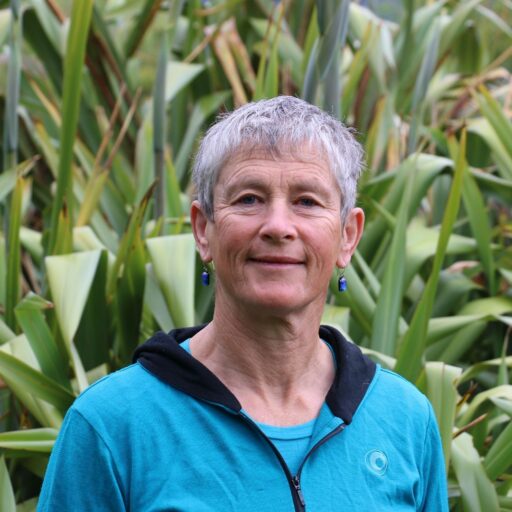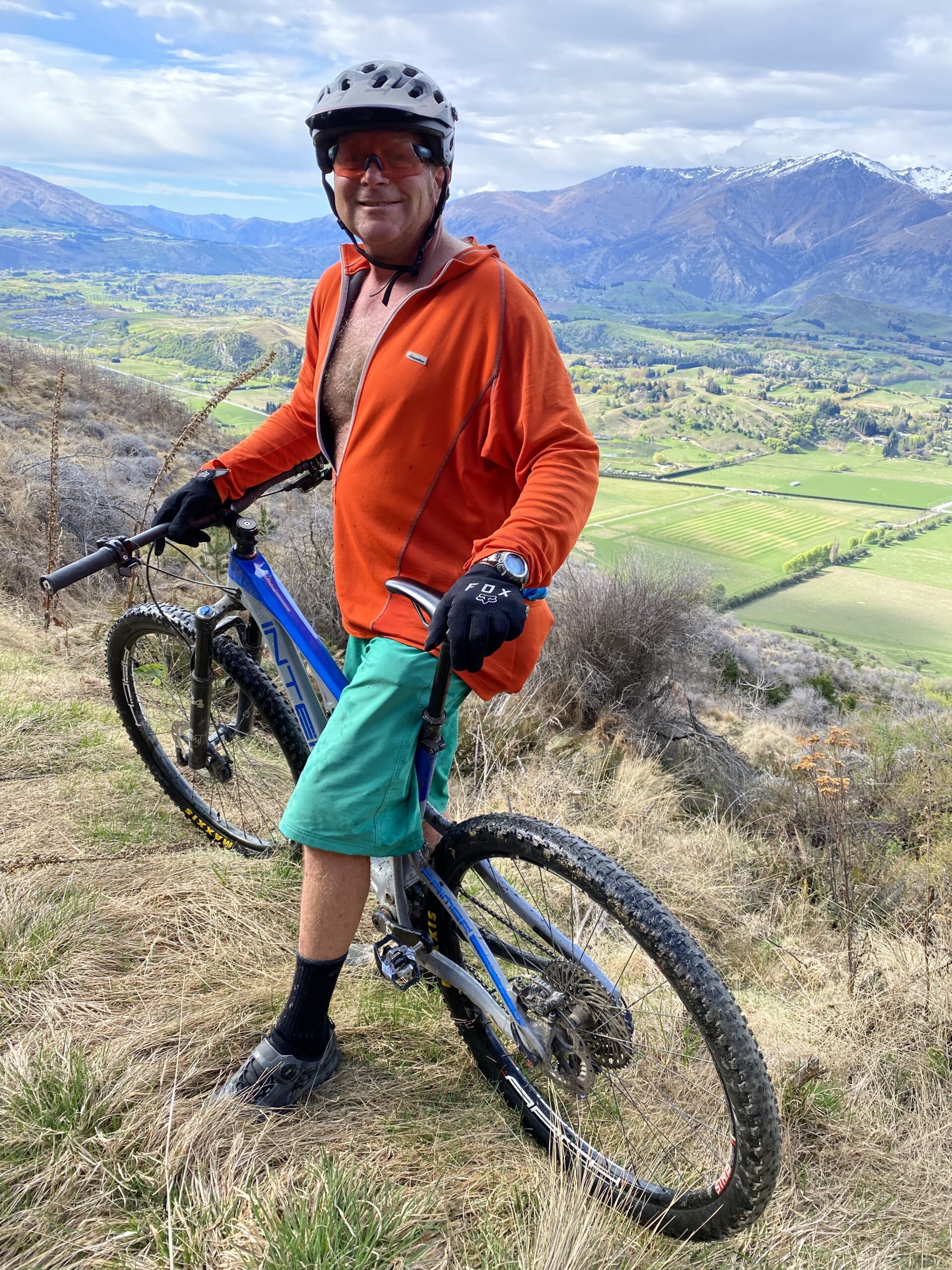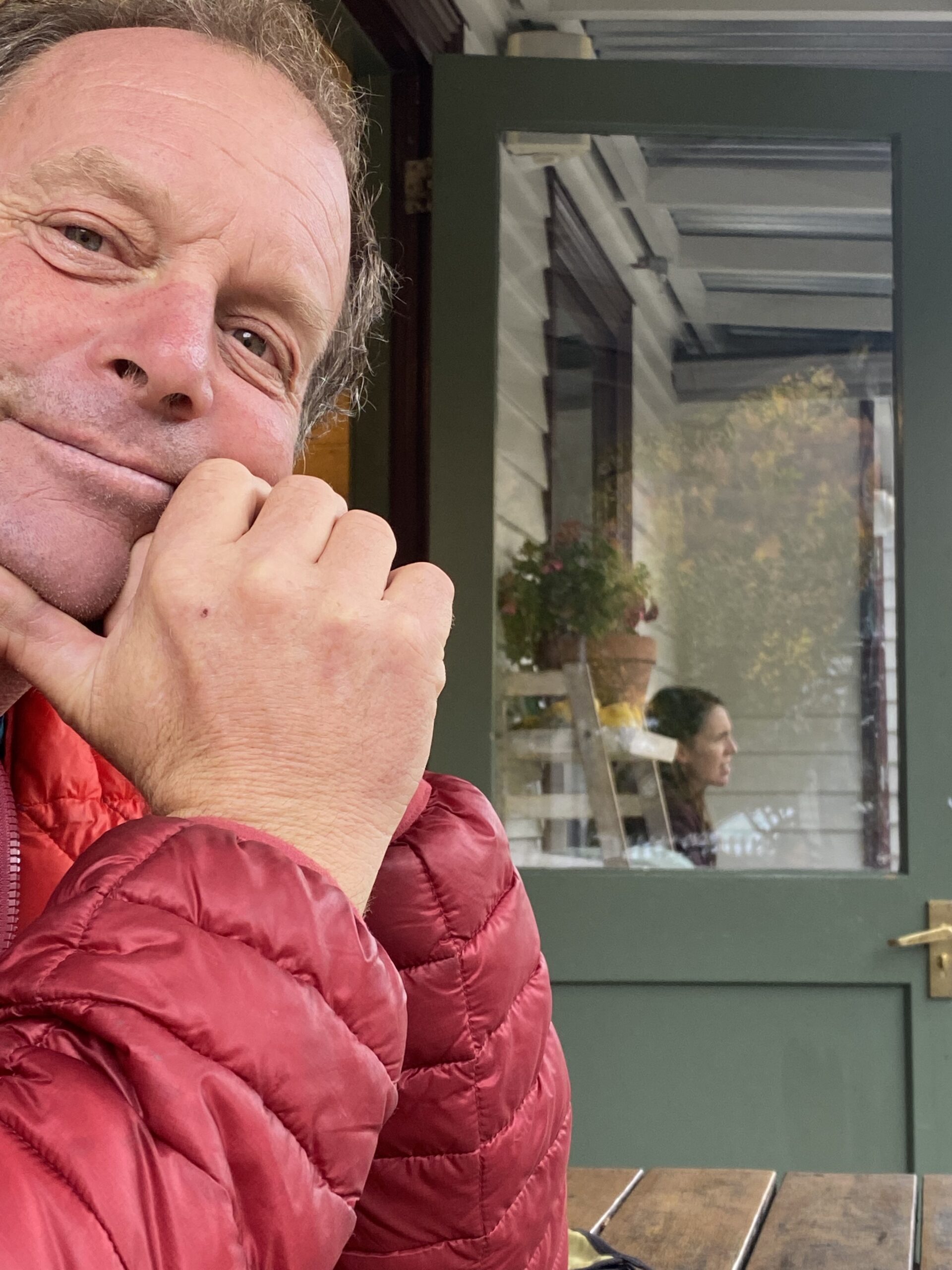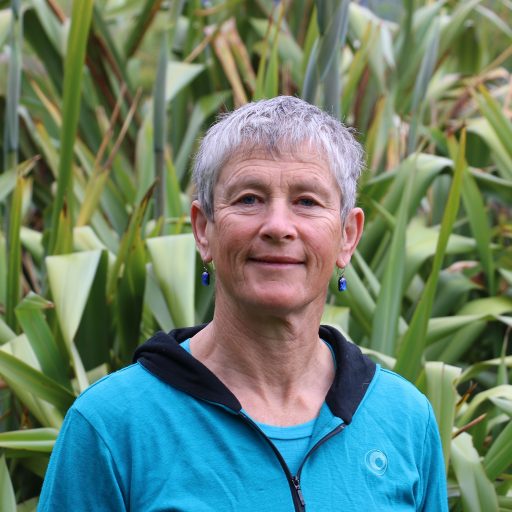Above: Chris in green shorts on Coronet Face
Below: Jane in unicorn shorts on Coronet Loop
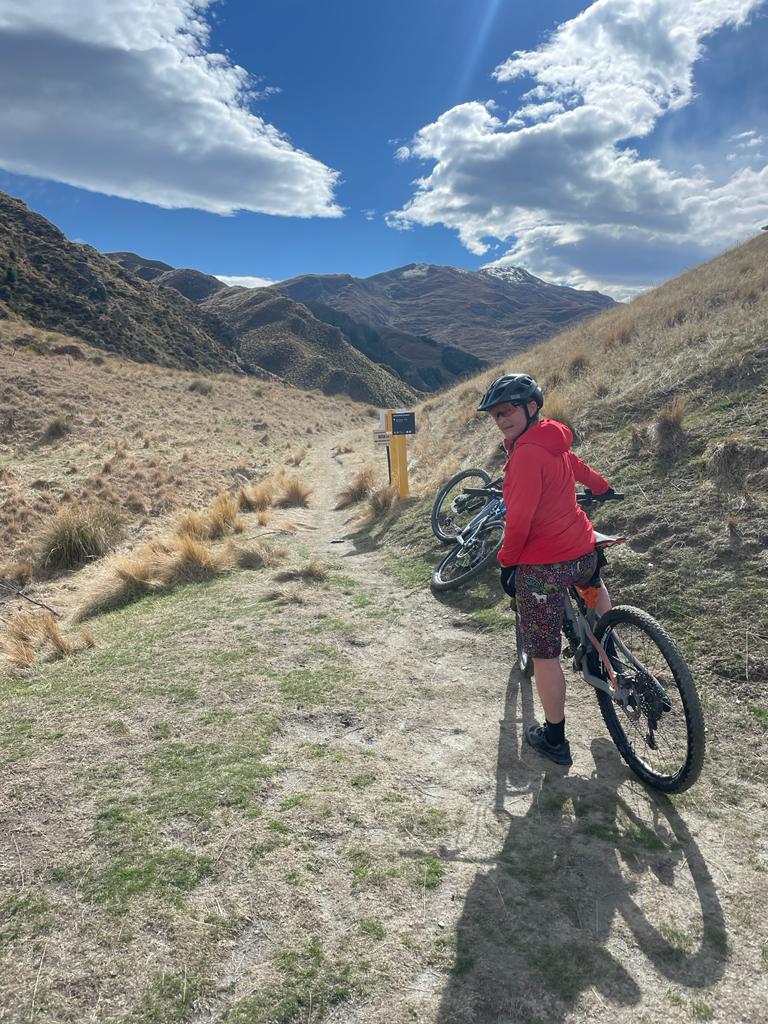
Sarah is in New Zealand MIQ, enjoying the hospitality of the New Zealand government and the selection of meals at the Grand Mercure in Auckland. So we sent her pictures of us going for a mountain bike ride and having lunch in Arrowtown – we are very kind, I know. Sarah said she liked Chris’s mountain bike shorts. I was a bit hurt – my unicorn mountain bike shorts are much more spectacular than Chris’s green shorts, they are just smaller in the picture. So I mentioned that I bought Chris those green shorts to go on our cycle tour October 2020, but he had to mail them home again because his butt was too soft for unlined shorts, so he bought padded shorts in Hokitika. Chris countered by saying that he had to sit on the sofa for 6 weeks when he broke his ribs (walking on the Grade 1 Millenium Track in Wanaka), therefore his butt got soft; I think my case stands. Chris had a sting in his tail.
On a less amusing note, New Zealand has left its rather elongate ‘short sharp lockdown’ attempt, and left its elimination strategy in the dust as we moved into a new method of COVID-19 management this week. The first part of the coming psychological shock has hit home, as we lose our international status of having maintained an elimination strategy longer than most countries. I think Hong Kong is now the only country fending off delta; we failed along with the rest of the world. The challenge of managing delta, compared to the ‘wild’ COVID-19 (if the original variant was ‘wild’, does that make delta ‘furious’?) is easily seen in the comparison between the effects of our national lockdowns in 2020 and 2021.




While the peak of infections in the 2021 delta outbreak was shorter than the 2020 COVID-19 peak (driven by more numerous sources), the delta tail has gone on, and on, and on. Ashley Bloomfield and Jacinda Ardern kept telling us there would be a long tail following the initial peak of infections; that tail has got the better of us. Evidence of movements suggest that people were (at least initially) as compliant in Level 4 lockdown this year as last; however delta infected households in a way that the 2020 COVID-19 did not demonstrating its increased R0, from between 2 and 3, to between 6 and 7 for the delta variant (1 person infects 6 to 7 other people, on average).

Last year, an infection in a household only sometimes led to the whole household being infected, this year it seems almost universal that the whole household gets infected. This degree of infection has led to so many more people being infectious in the community than last year and therefore ongoing spread of disease. We have also seen what happens when disease gets into the community ‘underground’ – the criminal community wants to keep earning income and is less interested in obeying government mandates than other elements of society.
Now we have a balancing act that will need to last for months. Everyone in the health system knew and still knows that we need our vaccination rates to get a lot higher if we are not to have a massive health toll when delta infections really take hold in the community. The health toll will come from COVID illness and deaths, but also from illness in deaths of those who cannot be treated because hospital beds are taken up by COVID patients, and there will be a massive toll on health care workers. We have no natural infection to back up vaccination levels, as do European countries, for example. The government knows this too, as evidence by the rapidity with which COVID Alert Level 3 is enacted more broadly, as COVID-19 cases leak out beyond Auckland. We may have left Level 4 behind, but some degree of community restrictions are going to be our ongoing reality for some time to manage numbers of COVID infections. That 90% of eligible population target is a way off yet – we are just creeping above 80% with a first vaccination and 50% with a second vaccination.

Questions are starting to circle as to whether New Zealand should adopt a regional approach, like that of Australia. For those of us in the South Island a regional approach seems quite appealing, given that the South Island has not had a COVID case for about a year. However, given the rate at which cases are moving outward from Auckland, if it isn’t enacted soon, COVID will breach our borders.
Let’s hope the sting in delta’s tail is as quickly fixed as Chris’s rear end – in October he was a lycra warrior but by the following January he was once again resplendent in emerald cycling shorts.


Discover more from Jane Shearer
Subscribe to get the latest posts sent to your email.
